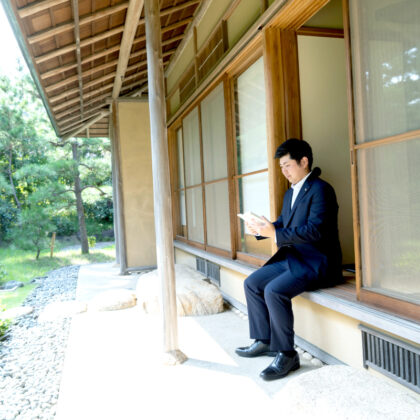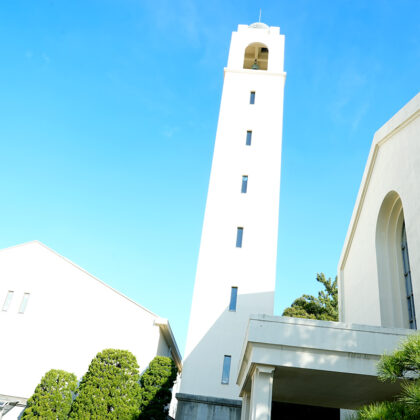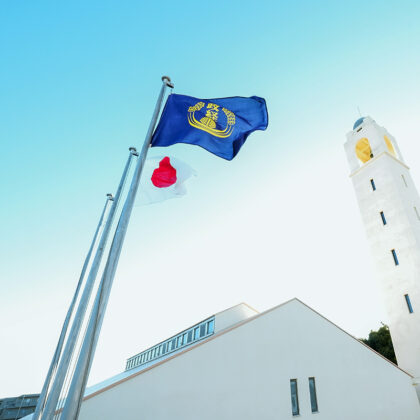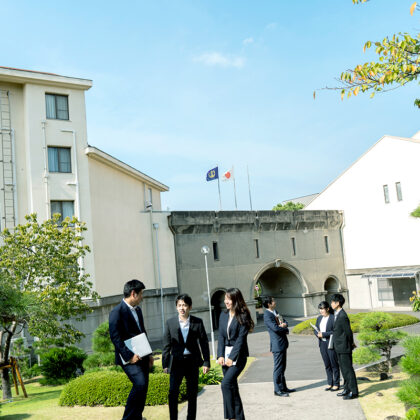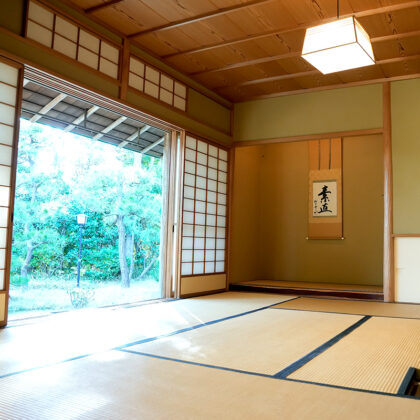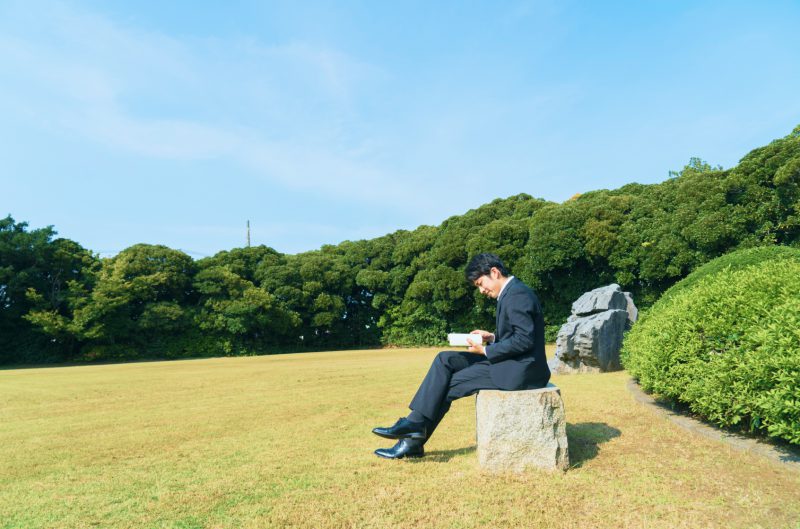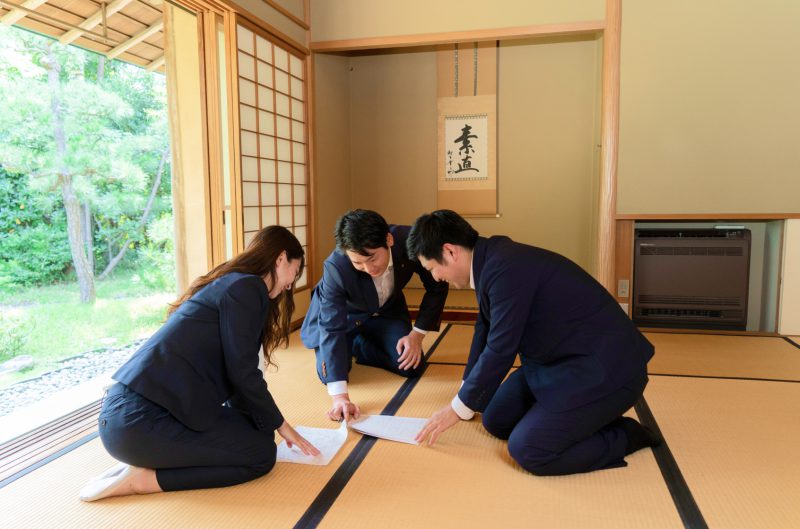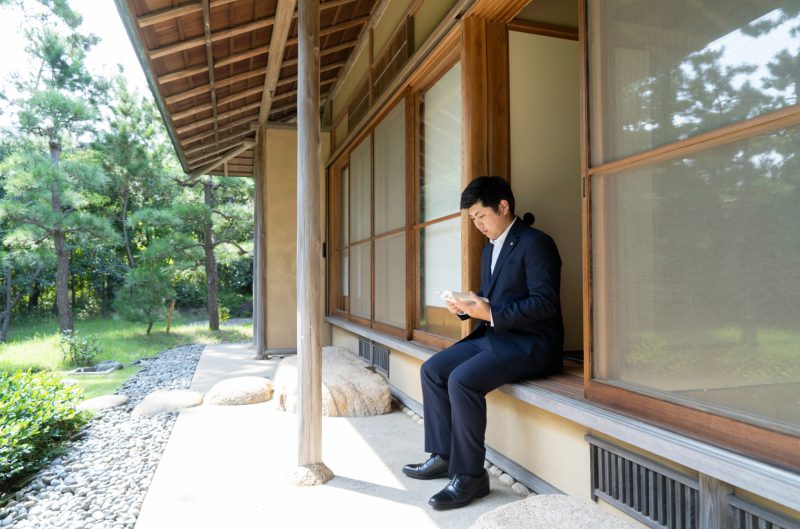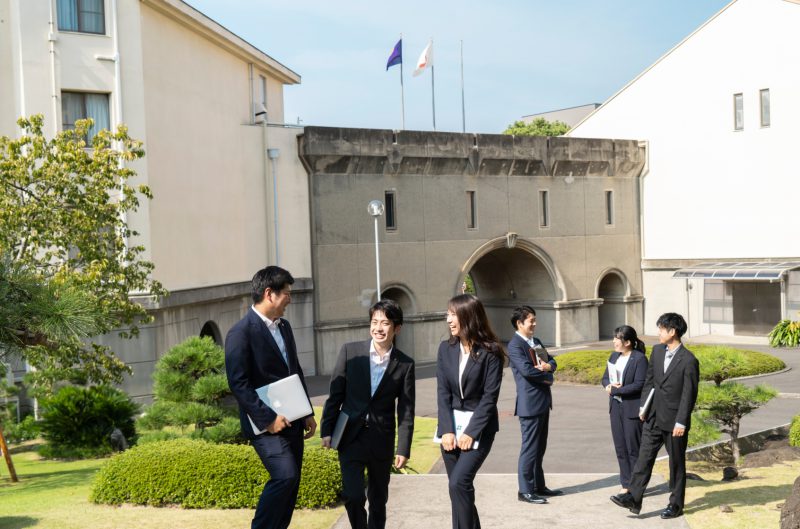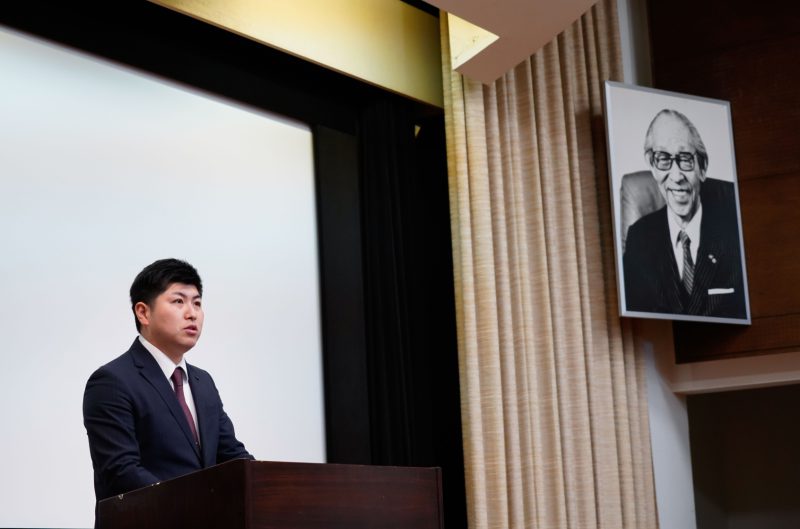The Matsushita Institute of Government and Management
Developing Future Leaders
We are a public interest incorporated foundation
Prologue
The Matsushita Institute of Government and Management (MIGM) is a public interest incorporated foundation that develops future leaders. It was established in 1979 by Konosuke Matsushita, the founder of Panasonic Corporation, out of his strong resolve to realize peace and happiness in the world through both material and spiritual prosperity.
Our expectation is that MIGM graduates will become the kind of true leaders who can envision an ideal society and then devote themselves to making that vision a reality. We emphasize self-directed, experience-based/practical learning, with associates designing and pursuing their own courses of study. During their time at MIGM, associates receive financial assistance in line with our founder’s wish that MIGM associates devote themselves to their studies without the concern of living expenses.
Politics, business, social entrepreneurship, education and academia – our graduates lead the way across society. MIGM opens doors for ambitious leaders of the future.Konosuke Matsushita Biography
Konosuke Matsushita Biography
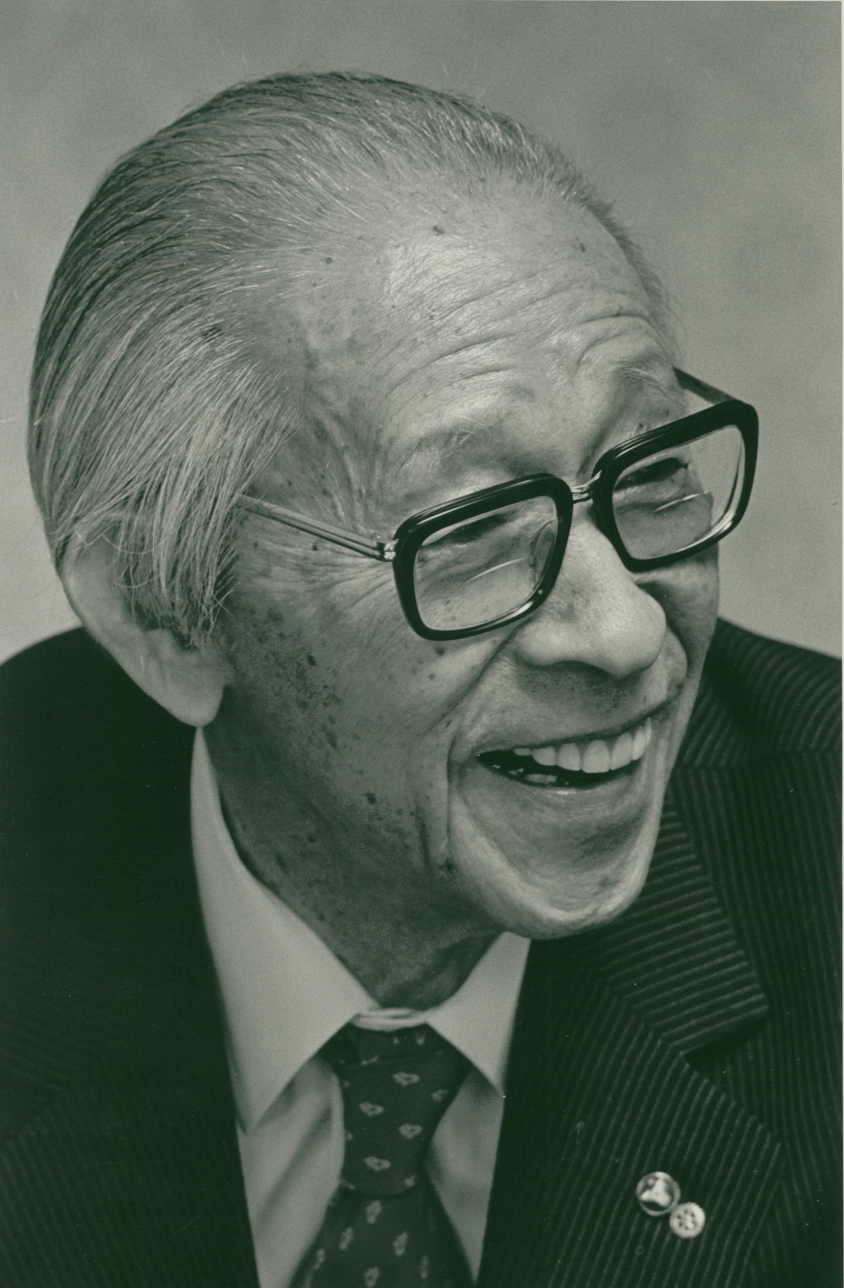
Founder of the Matsushita Institute of Government and Management
Konosuke Matsushita is renowned as the founder of world-leading electronics manufacturer Panasonic Corporation.
In 1918, at the tender age of 23, Konosuke launched Matsushita Electric Housewares Manufacturing Works, later to become Matsushita Electric Industrial Co., Ltd. (“Matsushita Electric”) and then Panasonic. Quick to anticipate the trends of the times while also closely attuned to user needs, Konosuke started his business with wiring devices but soon expanded into lamps, electrical heating devices, and then radios.
Fourteen years later in 1932, Konosuke experienced a social awakening as an industrialist, realizing that his real mission was to overcome poverty and contribute to social prosperity through business. He inspired the same philosophy in his employees and together they took the company to new heights.
Konosuke’s mission was to stall briefly, however, when war broke out and the wartime regime redirected all domestic industry to meet military demand. On Japan’s defeat in 1945, Konosuke found his native land in a state of physical and spiritual devastation. He immediately set out to restore the country as his duty as an industrialist. Recognizing the realization of prosperity through business as the mission given to all mankind, Konosuke launched a movement which he called “peace and happiness through prosperity,” or PHP for short, and set up a research institute to investigate how PHP might be achieved. He also communicated his views to the wider world through a monthly publication on PHP activities.

The 1950s through the 1960s was the era in which Konosuke really hit his stride as an industrialist. With the country riding high on strong economic growth, Konosuke painted a vivid picture of the bright and convenient lifestyles that household electrification would bring, and proceeded to generate a whole string of products to achieve just that. Not limiting his vision to Japan, Konosuke used exports and local production to share his mission internationally, laying the foundations for Panasonic’s global business platform today.
In 1961, Konosuke stepped down as president of Matsushita Electric, but remained as chairman of the corporation. He seized the opportunity of more time to expand the scope of his activities and build himself a solid position as one of Japan’s opinion leaders. Meanwhile, his deep investigation into PHP also brought wider public awareness of Konosuke as a philosopher. In 1964, Life magazine described him as not only one of Japan’s top industrialists and biggest moneymakers, but also a philosopher, magazine publisher and best-selling author.
Having become far more than a business leader, Konosuke’s thoughts had turned to the future of Japan and the world. He felt that it was vital to cultivate the leaders of tomorrow, and in 1979, this growing sense of mission led him to invest seven billion yen of his own funds to establish The Matsushita Institute of Government and Management. Konosoke’s aim was to realize prosperity grounded in his 1932 awakening, as reflected in the trajectory of his 94 years of life from the early pursuit of prosperity at the helm of Matsushita Electric, then on to deeper contemplation through his PHP research and activities, and finally the launch of MIGM as a vehicle for his passion to develop leaders to guide Japan and the world to prosperity.
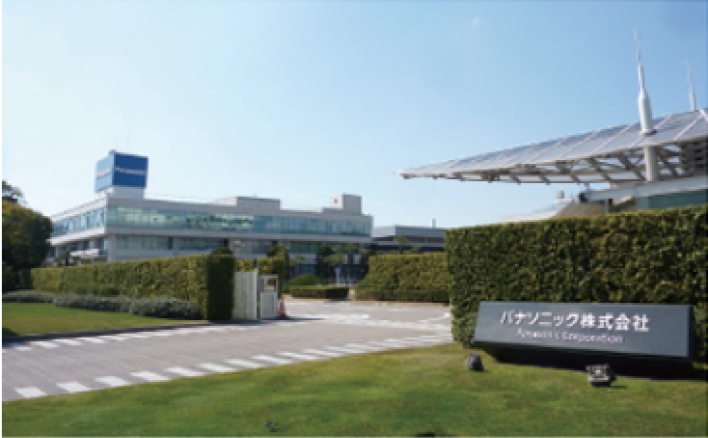
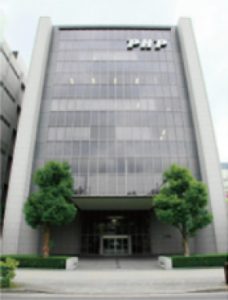
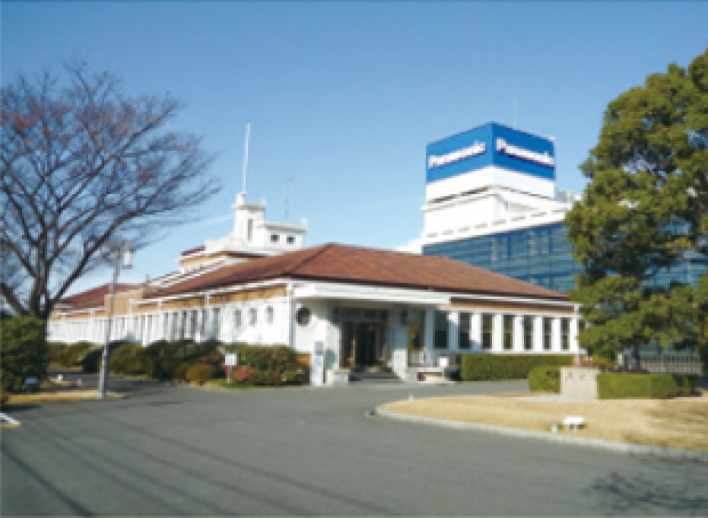
Mission Statement
Postwar Japan staged a truly remarkable recovery to emerge in a few short decades as one of the world’s leading economies.
However, the situation in Japan remains far from ideal. Economic challenges such as yen appreciation and the need to secure adequate long-term stable supplies of food and energy are problems that can only be solved through the adoption of an international perspective. Socially, the most pressing concerns are the rising rate of juvenile delinquency, a weakening sense of community, a loss of raison d’être, and confusion in both rational thought and public morality. These problems are linked with material prosperity, suggesting that the spirit of the people can fall into disarray despite, or even because of, economic advances. The specific causes of these problems are multifarious, but they are all rooted in the lack of a long-term constructive vision for the country’s future.
If there were a solid and clear long-range fundamental philosophy, it would empower government and politics to provide economic and social stability, thereby achieving peace, happiness, and prosperity across the nation. Accordingly, in order to advance Japan and ensure its long-term security, it is of utmost importance that we seek a fundamental philosophy for the nation that focuses on true prosperity for the people, prosperity that is both material and spiritual.
However, even if such a noble philosophy were articulated, it would come to nothing in the absence of leaders, especially in government and politics, with the vision and the will to implement such high ideals. Fortunately, while Japan has a dearth of natural resources, this is balanced by a true abundance of human resources. Challenged as we are today on so many fronts, it is crucial that we devote ourselves wholeheartedly to developing and training young people to lead the country into the future.
It is with this goal that we have established the Matsushita Institute of Government and Management to bring together promising young men and women with a deep love for their country who will strive to make Japan a better place in the 21st century. The Institute will offer training, research, and fieldwork in a wide variety of socially relevant fields, as well as the opportunity to undertake whatever specific learning each of our associates deems necessary to achieve this goal. At the Institute, associates will engage in the study of such fundamental issues as the nature of humankind, natural law, and Japanese traditional values, not as abstractions but as concrete problems. We aim to facilitate the kind of wide-ranging and comprehensive independent study that our young associates will need to develop a vision and management philosophy for the nation. Participation in internships, practicums, and other hands-on social experiences will enable associates to familiarize themselves firsthand with the conduct of a variety of social activities, including politics, economics, and education. We believe that their time at the Institute should equip our young men and women with strong convictions, a deep sense of responsibility, a broad international viewpoint, and the ability to put their ideas into practice.
Through the Institute’s rigorous program of training and research, we are confident that our associates will acquire the social sensitivity, insight into social philosophy, and mastery of the essence of management that will enable them to become leaders in their chosen field, whether business or politics, positioning them to contribute to true peace, happiness, and prosperity, not only for Japan but for each and every country of the world.
We believe that it is vital that the Institute be managed as a public institution so that we can both meet the expectations of the nation and its people and also continue to proactively pursue our mission over the long-term. It is to this end that we establish the Matsushita Institute of Government and Management as a public foundation.
January 22, 1979
Basic Principles
With deep love for our country and our people, we seek to contribute to the peace, happiness, and prosperity of all humankind by searching for guiding principles of government and management based on a new vision of the nature of human beings.
Basic Creed
With a sunao mind, we firmly dedicate ourselves to the gathering of wisdom, the seeking out of the intrinsic nature of reality through independent study, and the searching anew every day for the path that will lead to new growth and development.
Sunao mind:
The Japanese term sunao represents a mind that accepts life in a constructive way, a mind that is docile in the face of truth. It enables us to develop disciplined objectivity, free from prejudice. It allows us to see things as they really are. It is sometimes translated as the untrapped mind.

Five Pledges
To Realize Heartfelt Ambition
We pledge to strive to the utmost, always maintaining firm resolve. No matter what obstacles present themselves we will find a way to overcome them. Success consists of the willingness to persist until one has succeeded.
To Have a Spirit of Independence and Self-reliance
Our endeavors will not proceed successfully if we are dependent on others. Working independently and with a high degree of self-discipline induces others to appreciate and feel sympathy for our efforts. This sympathy and the cooperation it inspires will lead to collective wisdom and greater strength, which in turn will bring about more fruitful results.
To Learn from All Things
We pledge to learn from all that we see and hear. We shall regard every new experience as an opportunity for enrichment, for it is only with this kind of diligence that there can be genuine development. If we are always attentively observant then everything will become our mentor.
To Be on the Cutting Edge of Creative Innovation
Freeing ourselves from the constraints of stereotypical thinking, we will strive to develop creative innovations that will shape the future of Japan and the world. It is only the true pioneer that can open the door leading to a new history.
To Have a Deep-felt Spirit of Gratitude and Cooperation
No matter how talented our personnel there will be no success unless there is a spirit of harmony among them. Only by constantly having a spirit of gratitude and teamwork can trust be nurtured and true development occur.

